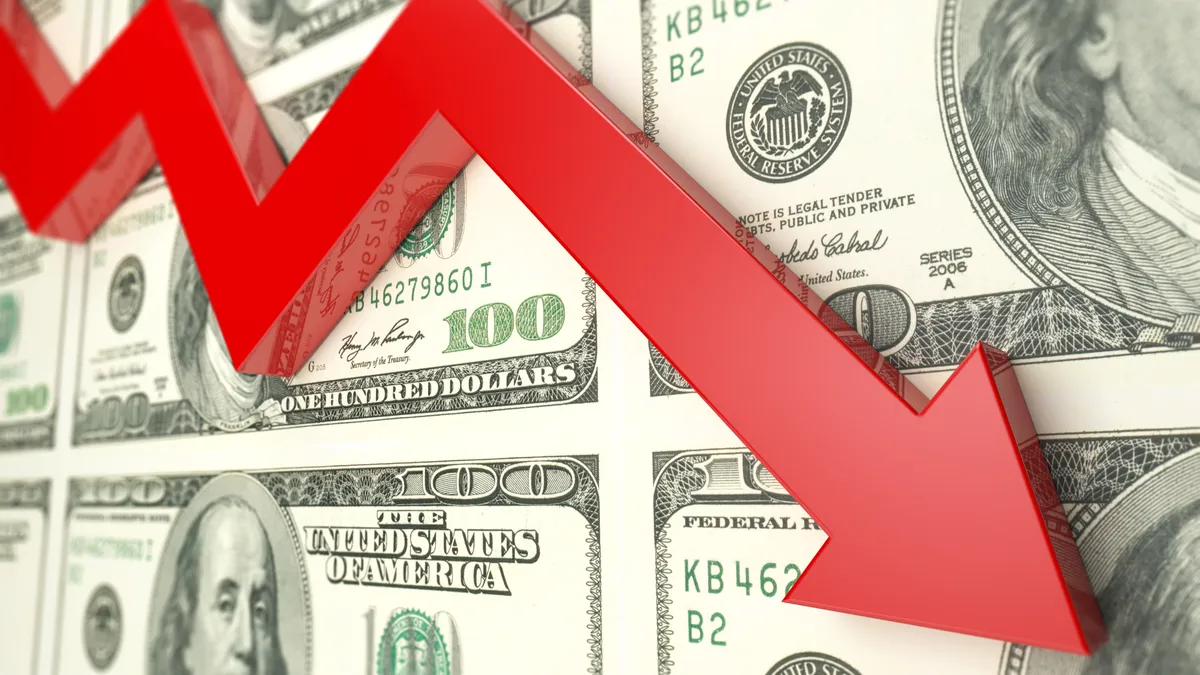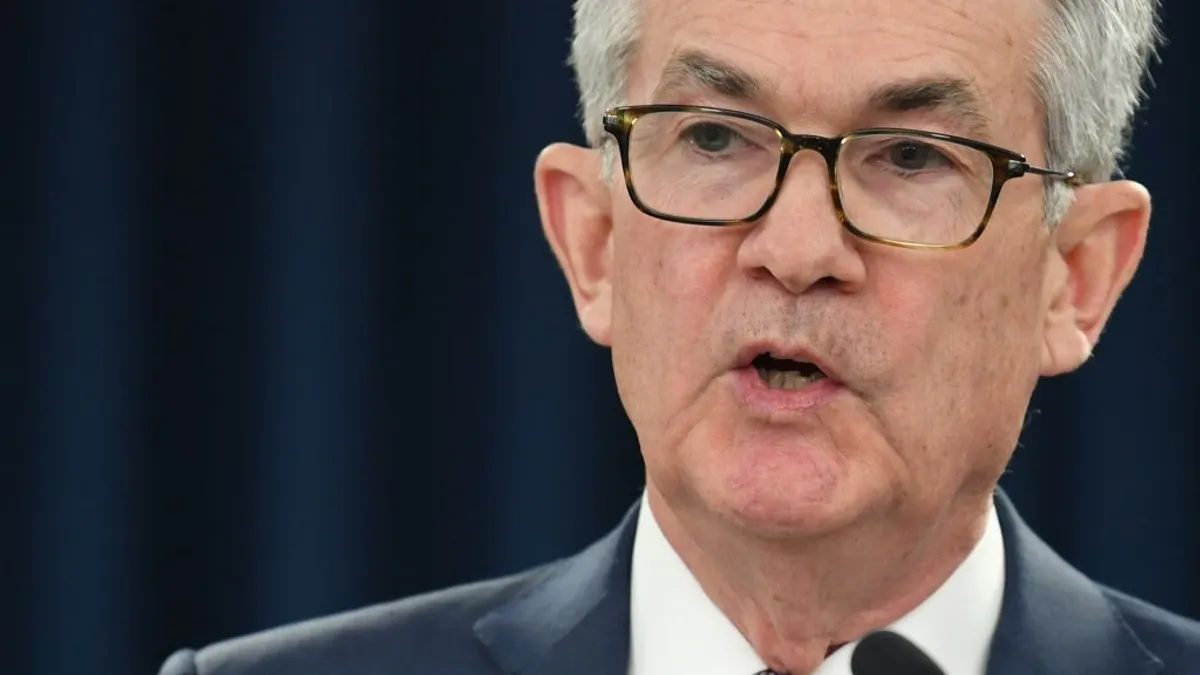Editor’s note: This story is part of a series on the trends that will shape the industry in 2021. You can find all the articles on our trendline.
One of many 2021 imperatives for CFOs: preparing their organizations for increased scrutiny on environmental, social and governance (ESG) metrics from investors, regulators and the public.
Many CFOs, across industries, have long recognized the benefit and importance of standardized, audited ESG reporting. The social activism of last year has only reinforced that. But how will ESG requirements and expectations challenge CFOs going forward?
2021 is the year of ESG capitulation, according to Blaine Townsend, director of sustainable investing at wealth management firm Bailard. "A lot of that comes from basic points we've argued for 50 years: companies who treat their employees and the environment better and are more transparent with stakeholders might make for better long-term investments."
Townsend, who's focused on ESG for 30 years, said at the beginning of his career, if you tried approaching a company you were interested in investing in about a sustainability issue in their supply chain, they'd direct you to their PR department.
No longer.
"There's been an incredible evolution in the c-suite on how to approach these issues," he said. "It's become a PR issue. There's an understanding in the c-suite that someone must be able to answer for ESG."
In many ways, the CFO should be the "main cheerleader" for sustainability issues, he said.
"Some of the acceptance of [ESG comes from] the ability to internalize the cost savings from better performance around energy issues," he said. "The CFO stands to benefit from better environmental practice. Long-term planning is a critical part of business success, and it lines up well with sustainability issues."
Businesses that emerge from COVID-19 should get out of survival mode and set themselves up for long-term success. Doing so requires being proactive towards ESG.
"Regulatory issues are coming," he said, referring to the possibility of the Securities and Exchange Commission (SEC) formalizing ESG reporting. "For that alone, getting ahead will pay off. The smart companies are always ahead and not playing catch-up."
CFOs can, in many ways, demonstrate the benefits of ESG prioritization. The cost of capital drops for companies with better ESG performance, Townsend says, whether that's due to retaining or hiring the best talent, or seeing the benefits flow through to the bottom line.
"You want to avoid creating roadblocks that don't actually exist," he said. "The markets have spoken in 2020; investors are interested in good ESG performance, so if CFOs are still seeing roadblocks, they're probably self created. It's clear the markets are interested in good ESG performance."
CFOs' best practices
"There's a huge opportunity for CFOs to be ESG leaders," Michael Stanton, CFO of modern governance SaaS company Diligent, said. "The CFO is not just the financial leader, but, when it comes to communications, and translation of those financial results of any other metric or KPI, the CFO has the default leadership perspective and the accountability for reporting to investors."
When it comes to best practices, Stanton says it's all about ensuring the company has the requisite infrastructure in place, the proper framework, top-to-bottom understanding, and the necessary systematic reporting and accountability so they can objectively measure, longitudinally, where it's starting, where it's heading, and what its gaps are.
Bernard Borghei, co-founder and EVP of operations at communications infrastructure company Vertical Bridge, agrees.
Borghei leans heavily on organization — detailed financial systems that give him access to all the various parameters and line items he needs to accurately calculate his company's carbon footprint.
"The financial systems we use came into play big-time," Borghei said. "The fact that every line item was very clearly outlined helped a lot, because the process is complicated to begin with. I'd strongly recommend CFOs keep a consistent system throughout the year to capture these kinds of expenses."
"With ESG disclosure becoming mainstream, CFOs [must] field an increasing number of questions from their stakeholders relating to their respective organization's ESG performance," Shailendra Gupta, CFO of Acuity Knowledge Partners, which provides research and analysis to financial services firms, said.
Companies should focus on building robust systems for collecting ESG data similar to their current mechanisms for gathering financial data, Gupta added.
Managing the process
At Diligent, Stanton regularly asks his team what it's doing to measure its progress from the social governance perspective. "That governance side is the part of ESG that's most classically owned by the CFO," he added. "The others can be split across the c-suite."
"There's a lot coming at us; there's a pretty significant tailwind behind ESG," Stanton said. "Define what ESG success and compliance looks like for your organization; that's first and foremost."
These things take time and need to be unpacked, particularly for more nascent organizations, Stanton acknowledged. "Don't boil the ocean," he said. "Define your requirements, know what success looks like, have the tools that let you track it over time, and then build upon that."
Stanton also encourages partnering with the CEO, chief human resources officer (CHRO) and chief information officer (CIO) to the extent solutions are being deployed.
"There's no better time to start improving ESG than now," he said. "It's an opportunity for the CFO to step up and take that opportunity and lead. There's an angle that the CFO is just a scorekeeper, but this is the best kind of scorekeeping, where the CFO has the opportunity not just on the pure financial metrics, but to step forward and demonstrate that leadership to all stakeholders and employees."
The bigger picture
"Philosophically, I prefer to focus on perfecting the process derived from ESG reporting rather than the outcome itself," Rene Ho, CFO at supply chain management and financing software company Taulia, said. "This not only produces the outcomes an organization wants and needs, but also changes the culture from within, generating positive, long-lasting change."
Taulia employs around 300, Ho said. Its footprint in terms of physical goods and services is small.
"Our biggest focus in ESG reporting is people analytics," Ho said. "While developing our analytics and data management capability we focused on removing bias from our people processes, such as hiring or compensation, rather than specific quotas or targets."
Ho's biggest challenge in implementing Taulia's ESG analytics is ensuring that once the legally-required anonymity is applied to the data, the company can still produce insights that allow it to improve.
Companies often fall short on their ESG goals because, when it comes to implementation, they don't establish the necessary capital allocation models and governance structures, Vincent Manier, CFO of ENGIE Impact, a sustainable business consultancy, said.
According to Manier, the finance team must be brought into the ESG planning process at the onset to ensure the project design makes financial sense and can be effectively presented to corporate decision makers and stakeholders.
They also must update current criteria to address the benefits of sustainability strategies. "This will lead finance leaders to invest in meaningful short- and long-term financial sustainability strategies that create enhanced industry reputation and reduced climate risk," he said.
"Without shared, quantifiable success metrics, teams lack the incentive to innovate and collaborate across departments," he added.
Prime KPIs
Additionally, the current industry reporting system can't accurately capture the data needed to measure the financial benefits of environmental sustainability programs.
This gap minimizes the opportunity for finance leaders to report on metrics like energy price volatility, water scarcity risks, water and waste regulations, and their supply chains' carbon footprint, he said. "Businesses must increase their long-term visibility into these metrics in order to drive ESG programs and make informed decisions."
Since measuring ESG-related performance can be overwhelming, it is helpful to approach financial communication and reporting by breaking it down into four distinct categories of KPIs.
-
Investments in sustainability projects (both in terms of the total dollars spent as well as as a percentage of overall corporate investments)
-
Financing indicators, such as the use of sustainable corporate finance instruments including green/sustainable/social bonds and loans
-
Governance indicators, such as board composition
-
Operational metrics, such as reduction in exposure to climate-related financial risks.
"Finance leaders should not get caught up in the absolute values of ESG-related KPIs," Manier added. "They don't necessarily indicate success."
Instead, CFOs should focus on evolution and momentum throughout the year, as most ESG and sustainability goals are long-term, making it challenging to quantify specific benchmarks.
Eyes on compliance
When it comes to compliance, Borgei says Vertical Bridge reviews and publishes ongoing ESG-centric KPIs, including the percent of minority-background employees, how many employees of each gender, and executive representation. "We're very focused on that, so we report on it on a quarterly basis," he said.
"When you look around the industry, there are no published KPIs or guidelines," he explained. "So, if I tell you we're a company of 225 people, can you tell me what's the appropriate breakdown of minorities? There really isn't a guideline; that's where the industry still has room to grow."
Depending on the industry, there's a chance that with every new presidential administration, new ESG rules and regulations follow.
"As CFO, you've already budgeted for 2021, and don't know when the rules may change," he said. "For a company like us, whose ESG focus is truly voluntary, we have room to maneuver and be flexible and adjust."
Everything Vertical Bridge has done under the banner of ESG since its founding, Borghei said, is less about money and more about social responsibility.
"I know CFOs are under pressure to perform, and they always should look at numbers, but, truly, for a successful ESG program, it has to be part of the company culture," he said. "When everyone buys into it, it's much more meaningful. Don't consider it an obligation; endorse and understand the benefits will impact everyone in the company. Once you see it that way, it becomes much easier to work on a sustainable program."



















